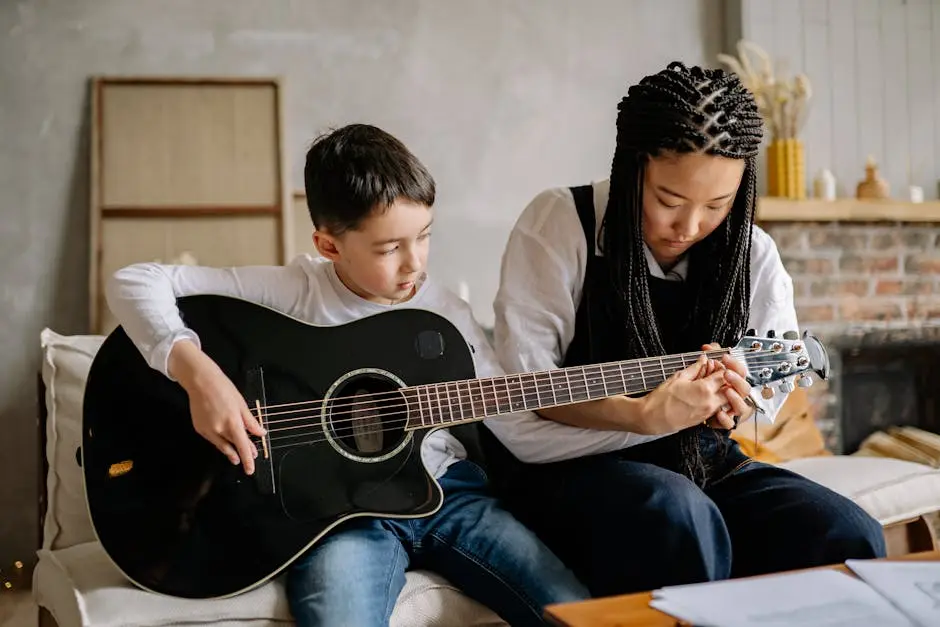Children’s music charities play a vital role in shaping the lives of young people through music. They provide opportunities for children to learn, create, and express themselves, fostering both personal and social development. In this blog, we’ll explore how these charities make a meaningful difference in the lives of children.
Enhancing Musical Skills
Children’s music charities are dedicated to enhancing musical skills among young people. Through structured programs and workshops, they provide children with the tools they need to learn various instruments, read music, and develop a deep understanding of musical theory.
These charities often employ professional musicians and educators who offer lessons that are tailored to each child’s skill level. This personalized approach fosters not just musical ability but also a sense of accomplishment and pride.
Moreover, participating in music programs encourages children to practice regularly. Regular practice builds discipline, and over time, this consistent effort leads to significant improvements in musical proficiency. The joy of seeing one’s progress cannot be underestimated—it further motivates them to continue enhancing their skills.
Ultimately, by learning music, children gain valuable cognitive skills. Research shows that musical training can improve memory, attention, and even mathematical abilities. Thus, a children’s music charity contributes importantly not just to skill development, but to overall academic achievement.
Fostering Emotional Wellbeing
In addition to enhancing musical skills, children’s music charities play a crucial role in fostering emotional wellbeing. Music is a powerful form of expression, allowing children to articulate feelings and emotions that they might find difficult to share verbally.
When children engage in musical activities—be it singing, playing instruments, or dancing—they often experience a release of pent-up emotions. This process can be particularly beneficial for children who face challenges such as anxiety, depression, or social isolation.
Participation in group music activities also promotes a sense of belonging. Children can connect with peers who share similar interests, building friendships that contribute positively to their emotional health. The support and encouragement they receive in these settings create a nurturing environment.
Furthermore, performing music, whether in front of an audience or as part of a group, can significantly boost children’s self-esteem. Successfully sharing their musical talent instills confidence and lays the groundwork for healthy self-worth throughout their lives.
Building Social Connections
Children’s music charities are instrumental in building social connections among young people. Music inherently thrives in communal settings—be it through bands, orchestras, or choruses. These groups offer children the chance to collaborate, learn teamwork, and develop communication skills.
Moreover, when children participate in music programs, they form bonds with peers who share a passion for music. This shared interest fosters friendships that extend beyond the music room. Such connections are invaluable during formative years, as they provide support systems that can last a lifetime.
Additionally, many children’s music charities organize community events and concerts. These gatherings allow children to connect with participants from diverse backgrounds, promoting inclusivity and understanding among diverse groups.
Through these interactions, children learn the importance of respect for others, empathy, and collaboration—skills that are essential for thriving in both personal and professional relationships in the future.
Providing Access to Music Education
A key mission of children’s music charities is to provide access to music education for all children, regardless of their background. Many families face financial barriers that prevent them from affording lessons, instruments, or even basic music classes.
By offering free or subsidized music programs, these charities ensure that every child has the opportunity to discover their musical potential. This commitment is not only about teaching music; it’s about breaking down economic barriers and fostering equality.
Furthermore, children’s music charities also often reach underserved communities, extending their outreach to areas where access to quality music education is limited. They ensure that children in these communities can explore their musical interests, which can change the course of their lives.
By empowering children through music education, these charities contribute to a more equitable society. The skills learned through music can lead to enhanced life opportunities, reinforcing the importance of support and investment in the arts.
The Impact of Music on Our Children’s Lives
By supporting children’s music charities, we nurture creativity, build confidence, and create a sense of community among young people. Each contribution helps pave the way for a brighter future, allowing children to thrive through the power of music.








